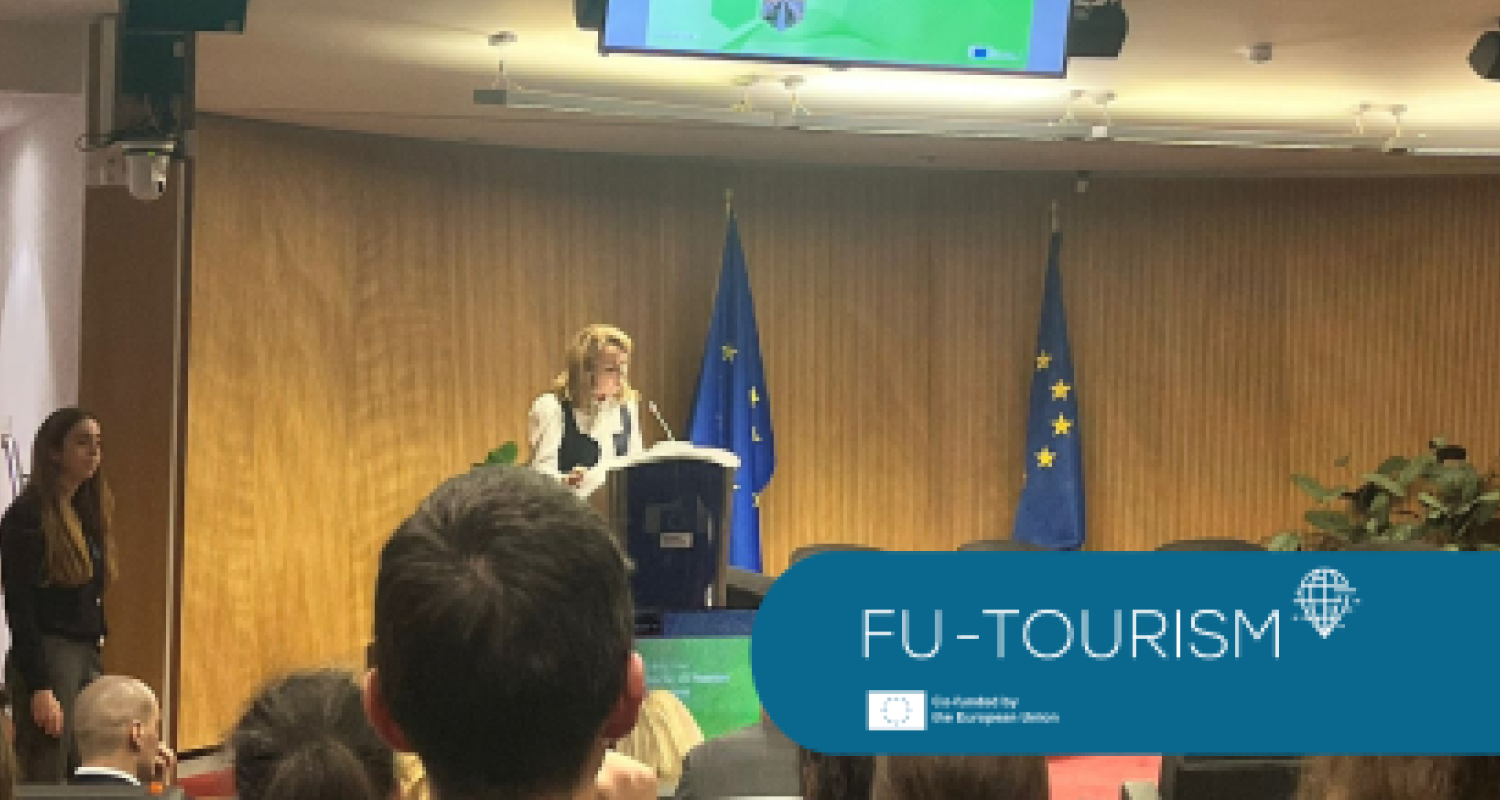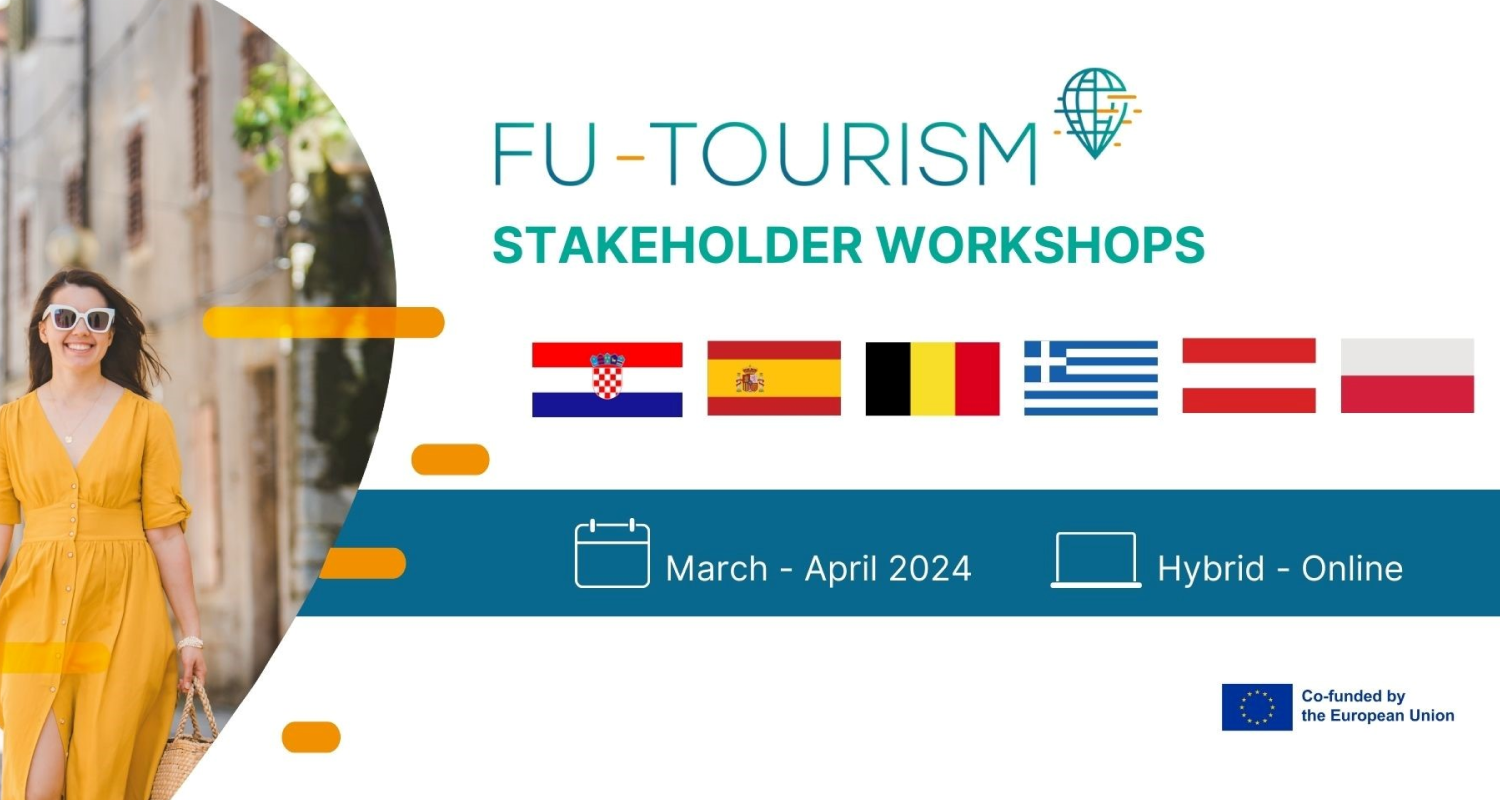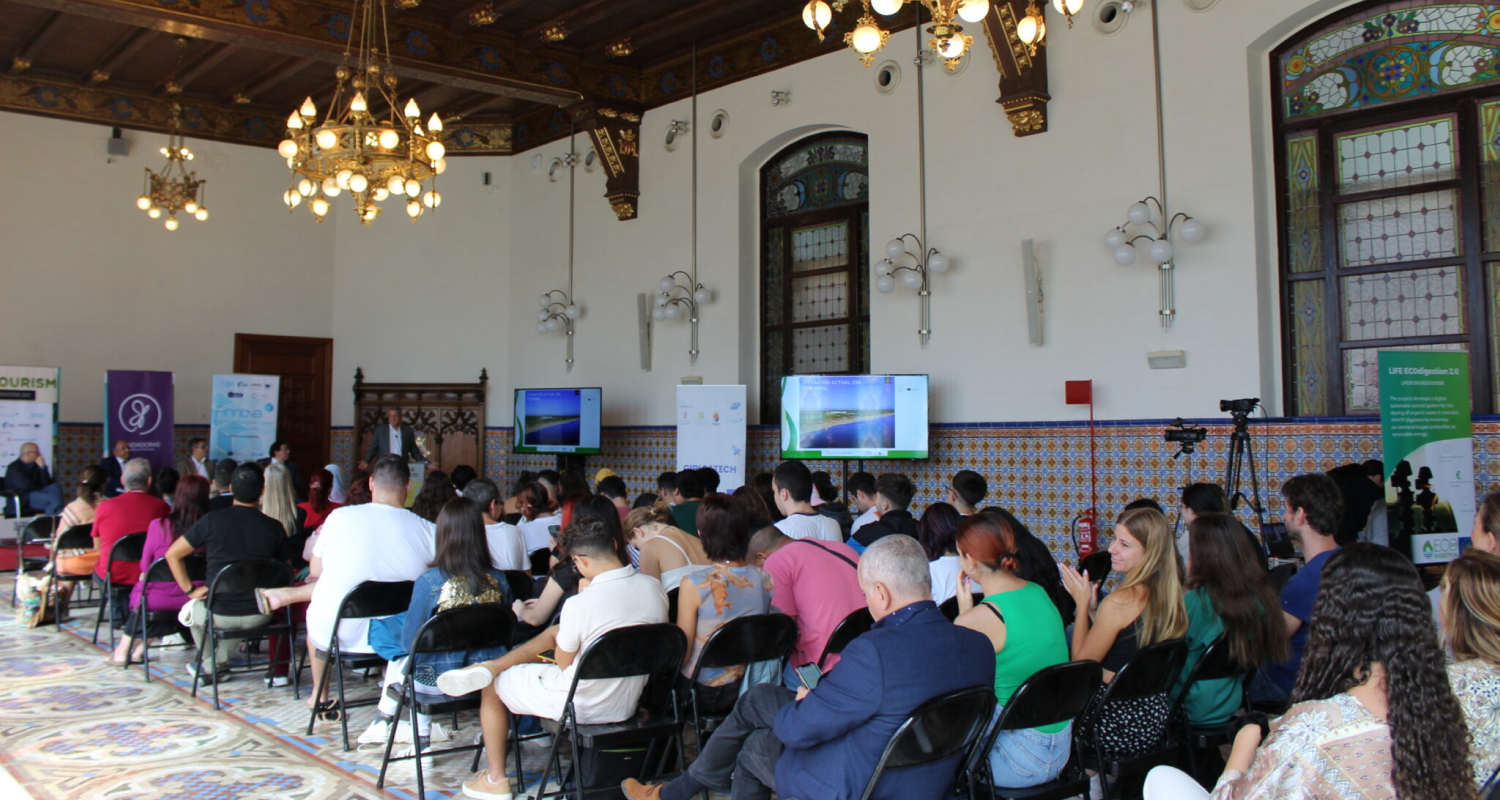
Success of the first FU-TOURISM workshop on strategic marketing and communication for sustainable tourism
- The session included representatives from the 60 SMEs selected per country, kicking off a series of 10 workshops that will address key areas for the development of innovative tourism businesses.
- During the workshop, fundamental tools and concepts were shared for designing effective marketing strategies focused on sustainable and digital tourism.
On Wednesday, May 7, the first of the 10 scheduled workshops took place as part of the FU-TOURISM acceleration programme, funded by the European Commission through the Single Market Programme (SMP-COSME), with a total budget of 4 million euros.
This workshop was part of an eight-month training programme that combines personalized training, mentoring, and networking opportunities with selected SMEs to strengthen business models and increase the long-term resilience of SMEs in a constantly evolving tourism sector.
The online session was moderated by Andrés López Rodríguez, a Finnova consultant specialized in rural development and sustainable tourism, and featured contributions from Lola Bordás, Finnova’s Marketing Director, and Patricia Cavanillas, Director of Communication and Institutional Affairs, both with extensive experience in innovation, sustainability, and entrepreneurship projects.
During the workshop, Lola Bordás introduced strategic marketing, covering key tools such as SWOT analysis, buyer persona definition, and the design of differentiated value propositions. She also explained how to integrate inbound marketing strategies, segmented email marketing, and affiliate marketing to improve the positioning of tourism SMEs in an increasingly digitalized market.
Patricia Cavanillas focused her talk on developing effective communication plans, distinguishing between “informing” and “communicating” with impact. She emphasized the importance of having a coherent narrative, an attractive visual identity, and content strategies tailored to the digital environment. The structure of a communication plan including SMART objectives, dissemination tools, and measurement KPIs was also discussed.
Key highlights of the workshop included:
- The need for clear, measurable marketing and communication strategies adapted to the target audience.
- The importance of personalizing messages, integrating sustainability into the value proposition, and using storytelling as a key tool to connect with customers.
- The usefulness of tools such as the Business Model Canvas, digital consumer behavior analysis, and phased planning (attraction, conversion, retention).
Through initiatives like this, the FU-TOURISM project reinforces its commitment to tourism entrepreneurship, green innovation, and transnational cooperation in countries such as Spain, Belgium, Croatia, Greece, Austria, and Poland.
For further information on how to apply, visit the official FU-TOURISM website.
You can also follow us on social media:
Contact email:




